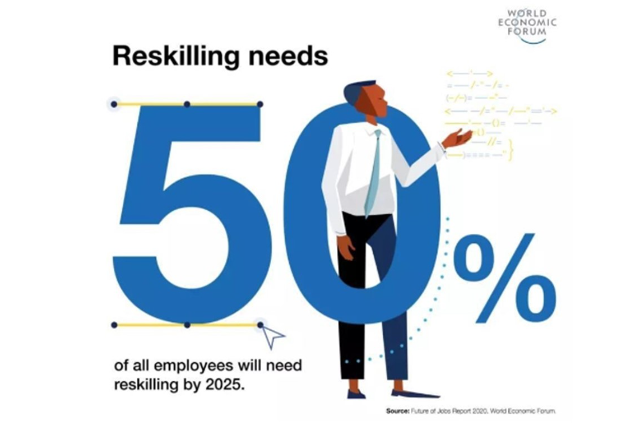The employee of the future needs to have job ready skills that make him suitable for direct integration into the workforce. Sadly, this is not the case as the needs of the industry and the skills of the graduate are widely out of sync. This is a present and staggering crisis that is affecting the Indian workforce. The predominant need that is not being meet is a lack of useful skills and the inability of the large majority to gain these necessary skills on their own or from their respective technical colleges. This needs a bridge that is precisely where the EdTech firms can come in with a lot of skills that are necessary for upskilling and reskilling.

Steps to be taken to stay relevant in the market
Gamification:
This refers to devising the model to be more fun oriented and make it less strenuous. The overall idea can be crudely referred to “Making work less like work”. This can be done by adoption of hackathons and individual oriented competitions that can be widely made available to all employees and the students who are looking to join into the platform. This makes the overall interface less cumbersome and more likely to have a lasting and positive influence on the employees.
Reskilling:
This is the idea of providing refresher courses for the employees who are looking to progress further in their career. This mainly has a significant impact on the older employees who will need new skills and more industry ready knowledge for staying abreast of the issues. Although a large part of this was covered during the tech boom, there is still a niche existing in the market that can be profitably exploited.
Upskilling:
This is the core competency of most EdTech start-ups that are looking to make a name for themselves in the field. This includes providing catered courses that are highly industry specific and have a huge demand in the market. This can be profitably engaged by having specific tie ups with the industry and developing courses in tandem with the industry demands. This is a win-win situation for all involved as it will mean that all the stakeholders have significant gains to be made by engaging with us.
Curated courses:
This is the next logical step from upskilling needs. Here we have profitable partnerships with one specific company and take over all their training needs. This will mean that the particular company will not have to ever engage or have a specific demand for training as we can meet this. This can create a source of consistent income for us and have a captive market for us to suitably exploit.
Teach Train Pivot:
This system is targeted at providing popular and high demand courses to the market at large. This could be done with a system that enables us to reach a wide audience with courses like digital marketing and machine learning. By providing course work and the videos all online, we don’t have much consistent investment but we can still manage to generate our income. This could help us to reach a wider audience and also make us more suited for ready adoption into our framework.
Product Differentiation:
This can be what is defined as our USP or what sets up apart from the market. The way we differentiate ourselves from the overall market as a whole is how we will eventually emerge as market leaders. The main USP that we can engage in is with our access to the specific courses that are unique to us like those offered by global universities that are not available in any other way. This could set us apart and provide us with audiences that are looking to emigrate and hence we can devise the courses in partnership with those universities.
Unique Insights and how it can help the future of the job market
One major insight that I was able to glean towards the field was the adoption of HR tech. The term Hr tech or human resource technology is a catch all term that has a wide series of applicability. This mainly refers to the adoption of virtual tools for employee productivity and monitoring. The main idea is that the HR managers can make more informed decisions that are rooted on the basis of the actual data than rather by using substituted guesswork or gut emotions. This could prove to be a revolutionary advantage as the decisions could be far more data driven which could be the edge that most companies are looking for these days. This is widely recognised in many countries with the industry leaders already making significant investments into this sphere.
India has always played a catch-up game in this regard. We have never actually been the industry leaders in technology or in the field of modern advancements in other regards as well. But the new crop of Indian start-ups is looking to change these perceptions and have already been bolstered by a sizable $116 million investment in 2019 alone. This shows that many investors are seeing India as a potential growth market for the HR tech field and that by leveraging this segment there are enormous gains to be made.
